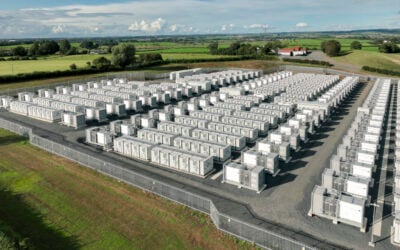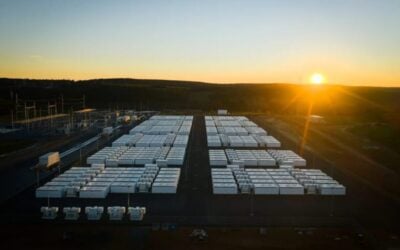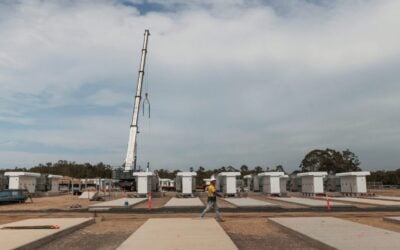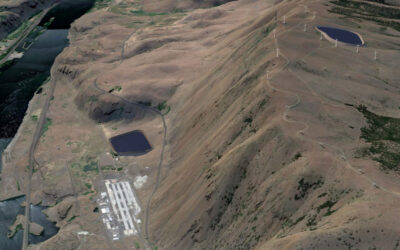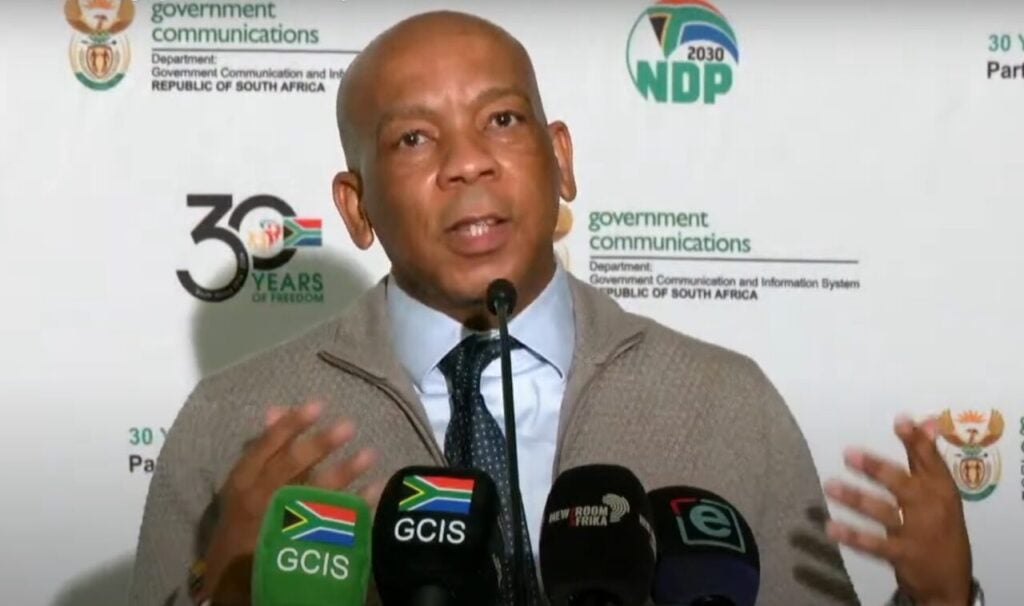
The Ministry of Electricity and Energy of South Africa has defended the integrity of its recent battery storage tender from accusations raised by the country’s main opposition party.
The government department issued a statement on Tuesday (3 June), with electricity and energy minister Kgosientsho Ramokgopa reaffirming that the third bid window of the Battery Storage Independent Power Producers Procurement Program (BESIPPPP) was conducted in line with established frameworks.
This followed opposition party uMkhonto weSizwe (MK) saying on 31 May 2025—the day after Ramokgopa announced preferred bidders in the tender—that the awards “reek of pre-arranged deals, insider networks and foreign capture of South Africa’s energy infrastructure, all in the name of energy transition.”
MK has been South Africa’s official main opposition party since 2024, after the Democratic Alliance (DA) joined the multi-party government headed by the African National Congress (ANC).
Try Premium for just $1
- Full premium access for the first month at only $1
- Converts to an annual rate after 30 days unless cancelled
- Cancel anytime during the trial period
Premium Benefits
- Expert industry analysis and interviews
- Digital access to PV Tech Power journal
- Exclusive event discounts
Or get the full Premium subscription right away
Or continue reading this article for free
Two developers, Scatec and Mulilo, were selected through the bid window. Mulilo was awarded four projects, and Scatec one, totalling 612MW of 4-hour duration battery energy storage system (BESS) projects, as reported by Energy-Storage.news. The total investment value was quoted at around ZAR9.5 billion (US$533.6 million).
They were selected from a total of 33 bids, and the Ministry of Electricity and Energy also announced the names and project details of unsuccessful bidders. The department also provided the scores each project bid received.
‘Highly competitive’ bidding
The ministry claimed that the BESIPPPP third round was “highly competitive,” noting that the number of bids had risen considerably from its first two rounds, and that winning bid prices represented a 40% decrease from Window 1 and 8% from Window 2.
It said that the winning bids met a set of five eligibility criteria, including a requirement for a minimum 40% black shareholding in project independent power producers (IPPs), 30% in construction contractors and up to 42% in operations contractors.
Bidders must commit to spending more than ZAR3.7 billion in local content during construction and in the operations and maintenance (O&M) phases. They must also make preferential procurements from enterprises designated as Broad-Based Black Economic Empowerment (B-BBEE), small and microenterprises and Black Women-owned businesses. They must also invest in community and workforce development programmes.
Mulilo is based in South Africa, but is majority-owned by European sustainable infrastructure investor Copenhagen Infrastructure Partners (CIP), while Scatec is headquartered in Norway with shareholders that include the state-owned energy company Equinor.
MK said in a statement tweeted to social media site X that it had written formally to the minister of electricity and energy, demanding “full disclosure of the bid adjudication records within seven days,” prompting the government’s response.
Ministry, programme administrators to brief committee
The opposition party’s issue appears to be mainly with Mulilo, highlighting in its statement that the developer’s chairman is the former COO of South Africa’s public utility and grid operator Eskom—which signs power purchase agreements (PPAs) with the programme’s selected bidders.
MK also referred to the “shadowy hand of Copenhagen Infrastructure Partners” as a foreign private equity firm through which billions of Rand “would flow offshore with no local empowerment to show for it.”
CIP is, as regular readers will know, one of the world’s most prominent investors in renewable energy and energy storage.
The government countered by declaring that the bid process “was subject to rigorous legal, technical and financial due diligence, consistent with national legislation and the prescripts of the Constitution of the Republic of South Africa, including the objectives of ensuring that public procurement fosters inclusive growth for previously marginalised communities, including women and youth.”
The media statement it put out highlighted that in ten bid windows for IPP procurements spanning a range of technologies, ZAR292 billion investment in renewable energy infrastructure has been mobilised. ZAR112 billion has been spent on or committed to BBBEE and ZAR81.2 billion on local content.
Black South Africans’ shareholding in these projects is 38.1%, including 8.8% by local communities, while ZAR4 billion has been invested in socio-economic and enterprises programmes.
Despite its rebuttal of MK’s accusations, the government said minister Ramokgopa welcomed “robust democratic scrutiny and regards public accountability as a cornerstone of good governance.”
Ramokgopa will request that his ministry and the IPP Office (IPPO) be allowed to brief a parliamentary committee on the programme and respond to any member of parliament’s concerns.
“We remain committed to ensuring that all procurement conducted under the Department’s auspices is beyond reproach and reflects the highest standards of probity and public trust,” Ramokgopa said.
Watch Minister Ramokgopa’s announcement of the preferred bidders and explanation of the BESIPPPP below.

